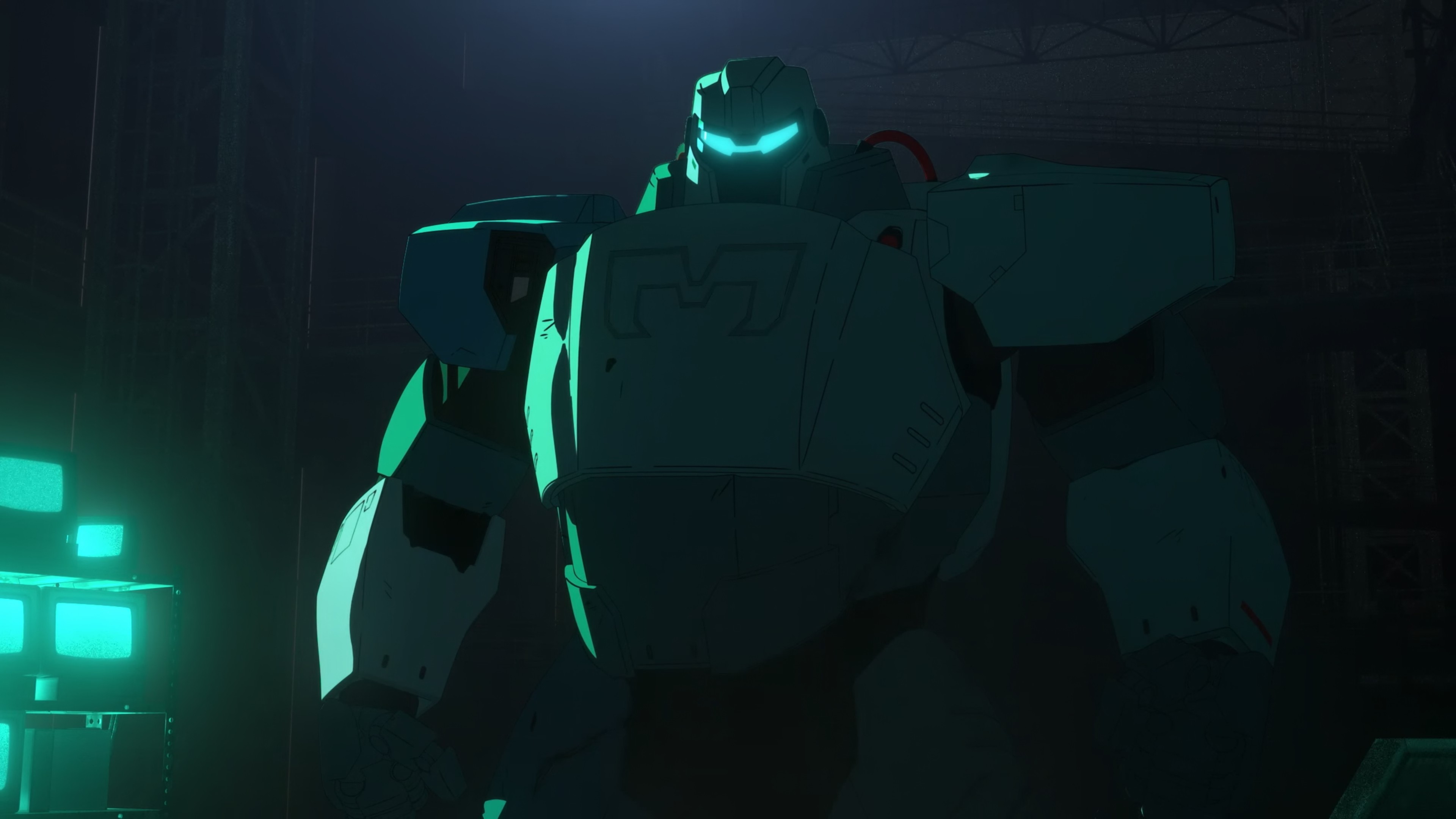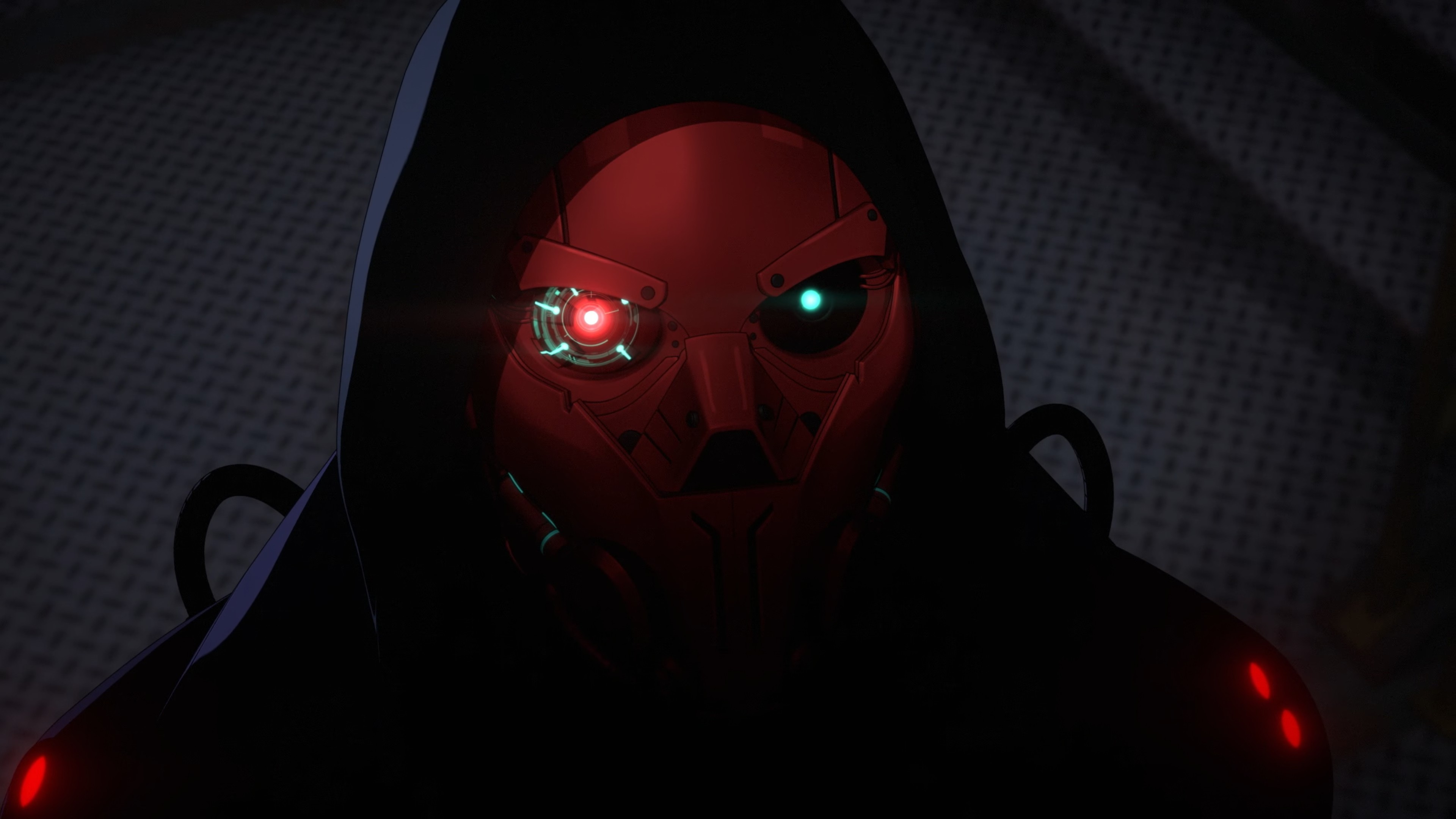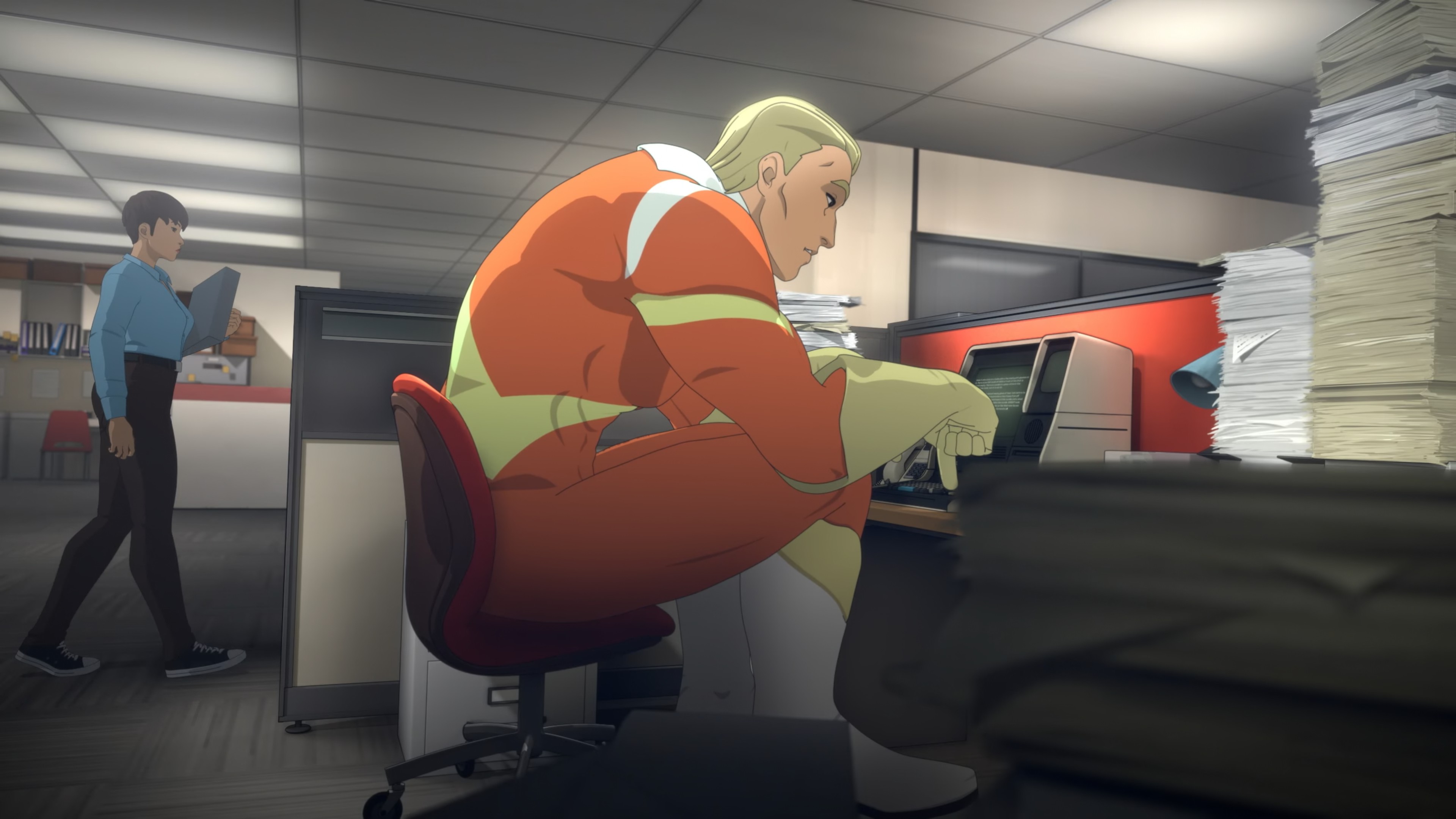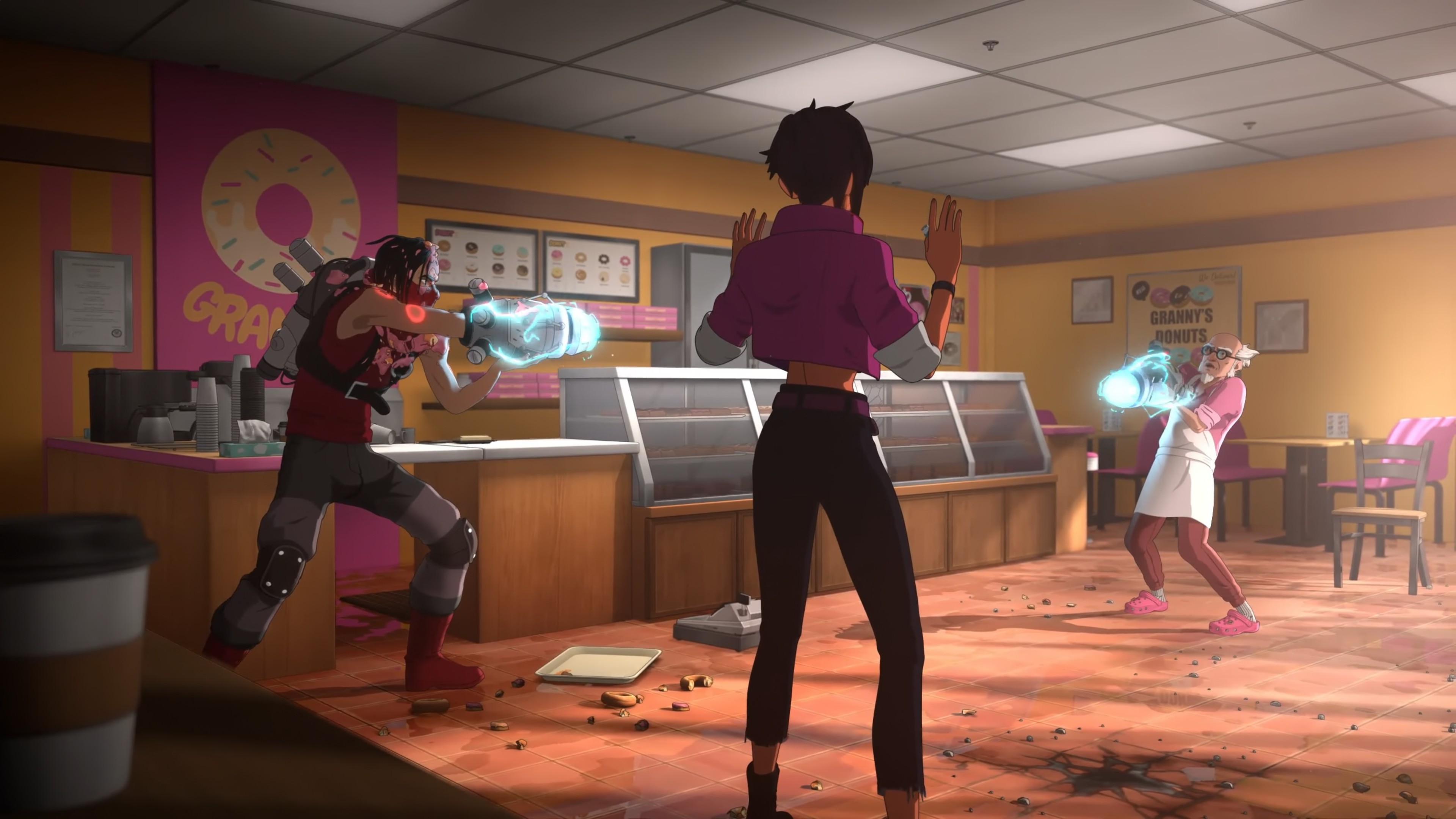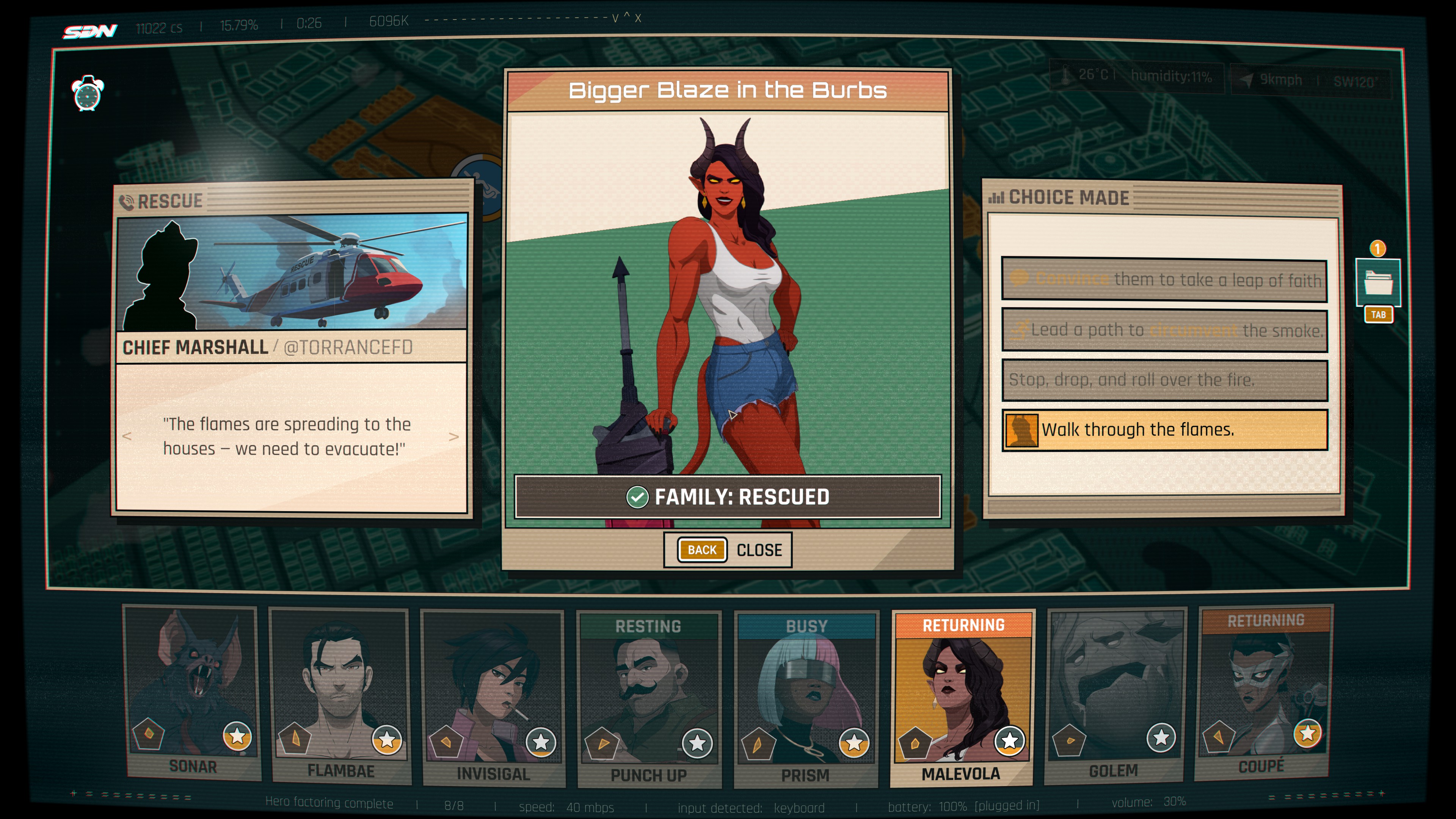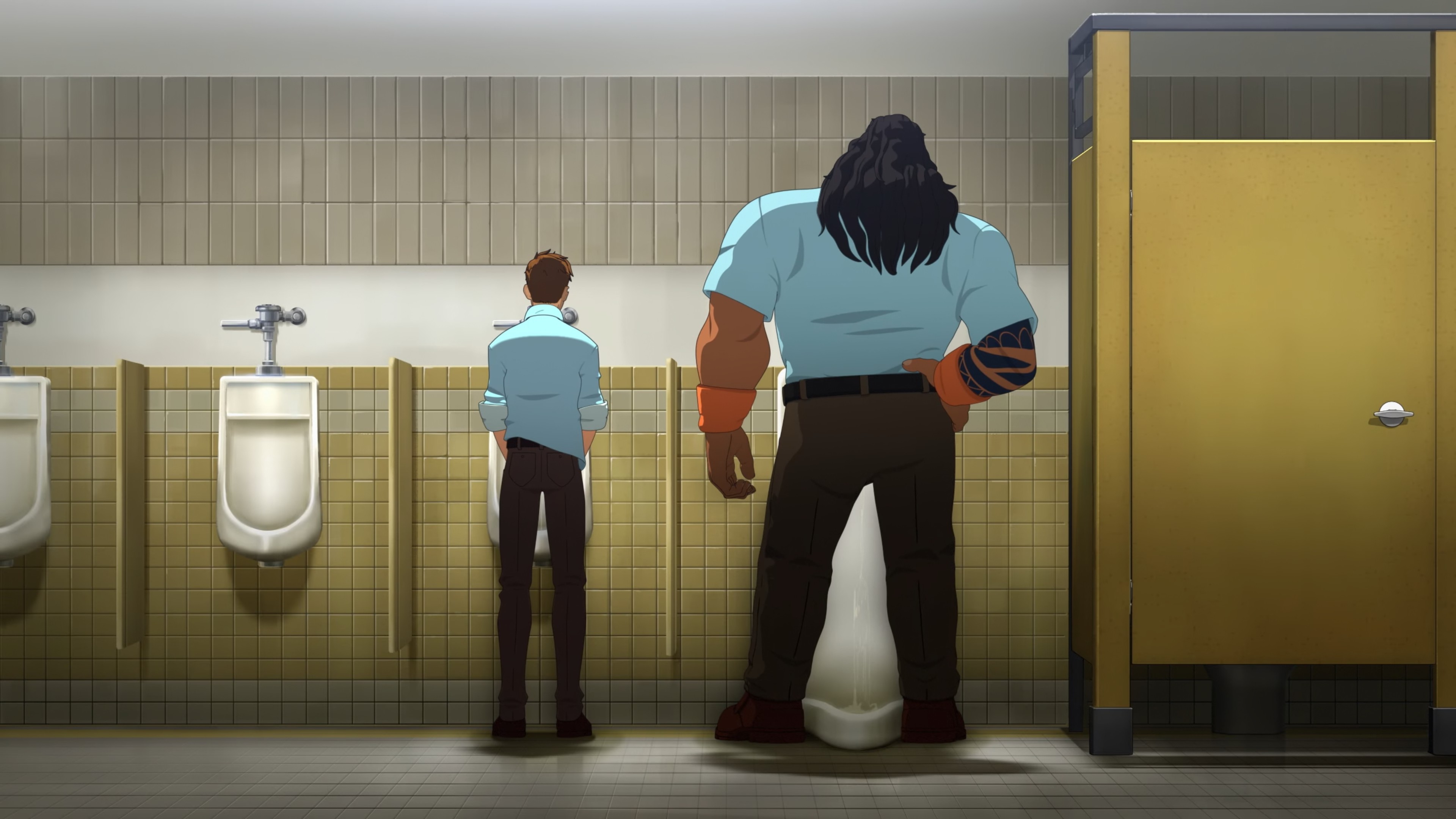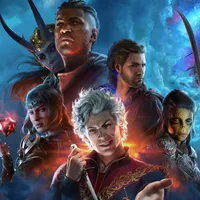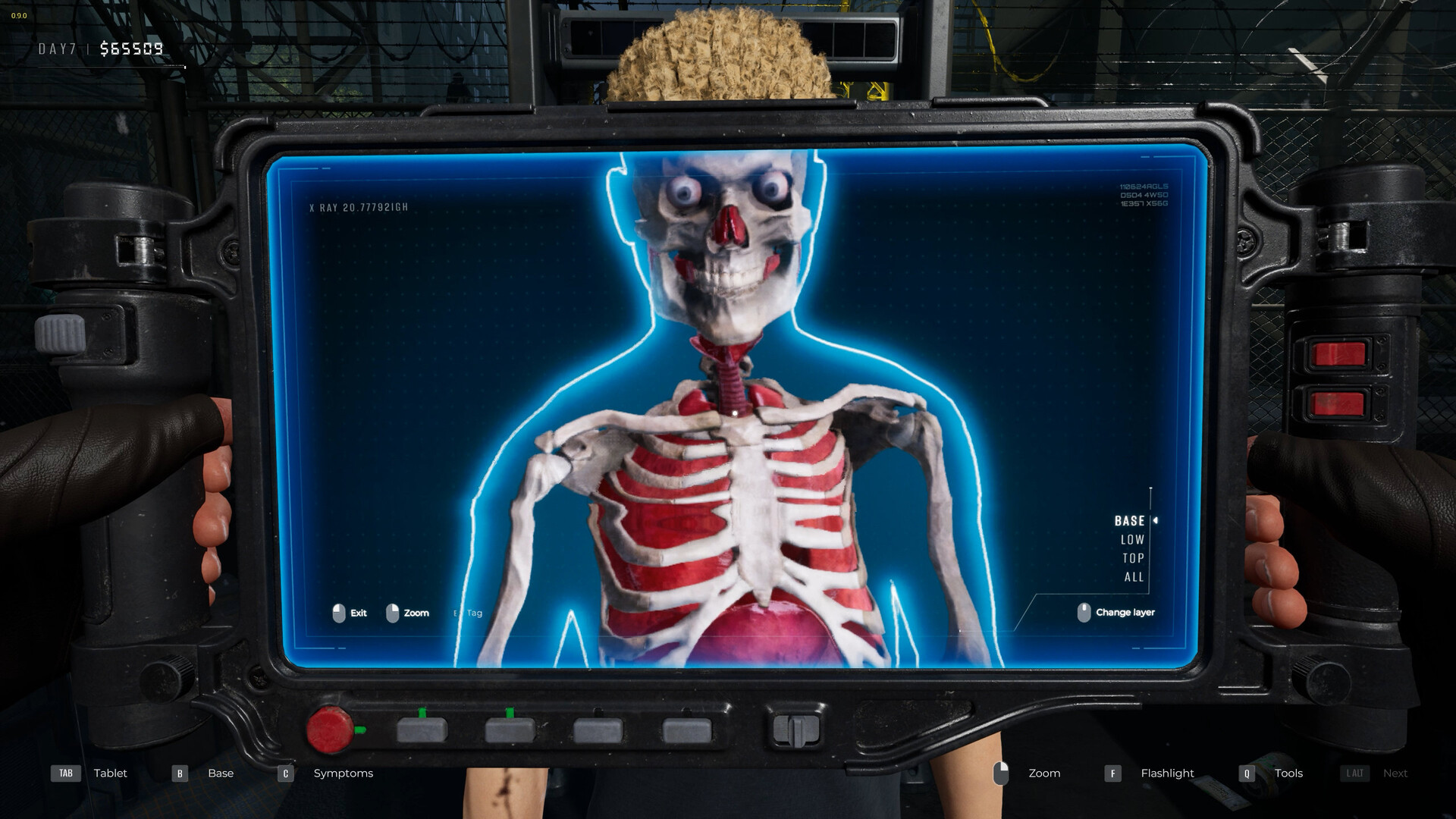AdHoc and Critical Role's superhero comedy Dispatch cuts right to the best bits of Telltale's greatest games
The two-episode premiere converted this sceptic.
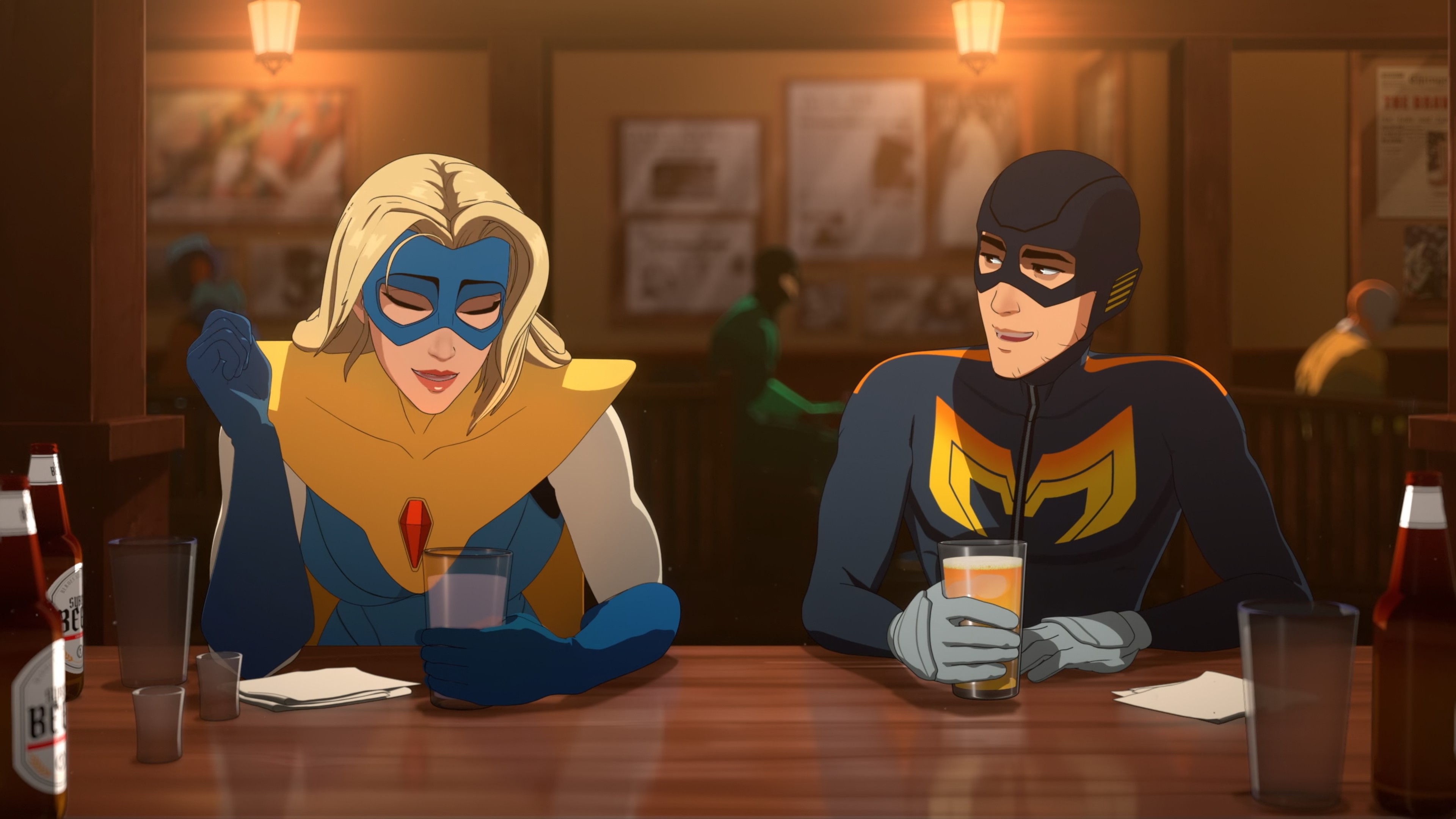
Playing Dispatch, the super-powered workplace comedy from AdHoc Studio and Critical Role, I found myself thinking about 2012 a lot. And not just because I yearn for the days when I didn't make weird noises getting up from my chair. See, that was the year Telltale reimagined the adventure game as a narrative-driven social conundrum with The Walking Dead.
As a point-and-click diehard, I was sceptical of the change in direction. Telltale had been helping to keep adventure games alive after the genre fell out of favour, and now it was making the switch to something that looked like an interactive TV show.
In that first episode of The Walking Dead, my scepticism seemed justified, at least by the brain-dead puzzles—including one that involved an otherwise intelligent character not knowing how to use batteries. But I still found myself eager to follow Lee and Clem's grisly journey, wondering if the social friction could make up for what the puzzles lacked.
Dispatch is an evolution of the Telltale style.
Those last vestiges of point-and-clicks held it back, but Telltale became more confident throughout the series, and it eventually stopped trying to appease the classic adventure game holdouts like myself. We were still required to do some light puzzling on occasion, but the social dynamics and big decisions were given so much more space—that's what these games needed.
Dispatch is an evolution of the Telltale style. But I guess I'm still resistant to change, because after the first episode I had a lot of doubts. Mostly, I was concerned by how limited my involvement was; it definitely emphasised the "TV show" part of "interactive TV show".
But just like The Walking Dead, after the second episode I was all in.
Onboard—much like The Walking Dead's classic second episode, Starved for Help—is a more confident episode. Or rather, it's a more comfortable one. Dispatch has a lot of fun with its workplace setting, but the opening episode, Pivot, is all setup: learning about the legacy of Mecha Man; watching the fall of the latest Mecha Man, Robert Robertson (yes, people bring up the name a lot); seeing him drown his sorrows as he figures out what to do with his life.
Keep up to date with the most important stories and the best deals, as picked by the PC Gamer team.
The gags are good—I particularly enjoyed starting a fight with a former villain by bestowing him with the name Mr Wet Ponytail—and the animation is top-tier. Oh yeah, and a radioactive villain hangs dong in like the first five minutes. It's clever, crude and the voice cast is exceptional—Aaron Paul and Jeffrey Wright in particular, but honestly everyone is knocking it out of the park. I liked it. But it was over in 50 minutes, and I didn't really do much.
With the setup out of the way, though, Dispatch finds its groove. On your first day of work, you discover you'll be a dispatcher for a dysfunctional band of former villains, sending them out on hero jobs for paying customers. With more eccentric characters to work with, Onboard is liberally doused in jokes and awkward interactions, eliciting some genuine belly-wobbling laughs from this miserable cynic. I am eager for you all to be forced to see how permanently-moist janitor Waterboy deploys his power.
Onboard also gives you more time with the management side of things, something that was only shown in a tutorial in Pivot. As a superhero dispatcher, you'll need to send heroes to deal with crises, picking the right supe for the job based on the demands of the gig and their specific skills and powers. Supes that include some guy made of dirt, a bat in an expensive suit and a legally-distinct Magik from the X-Men.
Onboard also gives you more time with the management side of things.
Different heroes will also unlock unique routes through these gigs, which often throw some Choose Your Own Adventure-style wrinkles your way. When I sent a hero to break up a bar fight, I had to help her diffuse the situation. Some drunks were arguing about their superhero names (who amongst us?), but since I sent a glam superhero influencer to sort it out, I was able to get her to give them both new names and a makeover, saving LA. Or at least one specific bar in LA. It was my first day, c'mon.
The climax of the shift is a flashy brawl in a donut shop (Granny's Donuts, owned by Granny, who is a crotchety old man), where you'll dish out commands and suggestions to stealthy hero Invisigal (formerly supervillain Invisibitch). It has the energy of a cinematic QTE sequence, but since you're guiding Invisigal instead of fighting yourself, there's an extra level of friction—welcome friction, I should add—and some opportunities to develop (or derail) your working relationship.
Dispatcher work is fairly breezy, at least in terms of mechanical complexity, but it's definitely not shallow. It's full of character-building banter, gags, minigames, and small moment-to-moment decision-making challenges that are simple enough so as to not bog down the flow, but meaningful enough to make the payoffs satisfying.
I also got punched in the face, reunited with an old friend (very old, since his speedster metabolism has done him dirty), and found myself in a wonderfully awkward love triangle. HR is going to be earning their keep.
Onboard is the stronger episode, but it made me reassess Pivot, too. It gets through the setup with a brisk pace, and between Aaron Paul's excellent performance as Mecha Man/Robert Robertson, and AdHoc's tight dialogue, I found myself already very attached to our down-and-out protagonist, which made it so much easier to slip into the follow up.
There's so much that I recognise from Telltale in Dispatch, which is unsurprising, given that the studio founders were all writers and directors there, some going all the way back to The Walking Dead's first season. But it also cuts out a lot: there's no exploration, for one, and none of that classic 'click on an object and get a witty description'—the last holdovers from the point-and-click days.
Dispatch cuts out the filler, fully embracing its TV roots.
But it turns out that's good! I liked those sections because I love adventure games, but they were never the high point of Telltale's stuff. Indeed, they often broke up the pace too much, stretching out episodes that should have just been an hour long.
Dispatch cuts out the filler, fully embracing its TV roots. It makes complete sense that this was originally pitched as a show, but what's impressive is that it's maintained that pace and energy in this new form. Some player agency is lost as a result, but not so much that I feel like my hands have been slapped away from the steering wheel.
And it's with a great sense of relief that I can say that it's a great superhero yarn and genuinely funny without caveats like "for a videogame". And that's still pretty rare—certainly when it comes to comedy. I get startled when a game makes me properly laugh, it's so unexpected. But Dispatch got some real guffaws out of me.
That's enough to get me to stick around for all eight episodes.
2025 games: This year's upcoming releases
Best PC games: Our all-time favorites
Free PC games: Freebie fest
Best FPS games: Finest gunplay
Best RPGs: Grand adventures
Best co-op games: Better together

Fraser is the UK online editor and has actually met The Internet in person. With over a decade of experience, he's been around the block a few times, serving as a freelancer, news editor and prolific reviewer. Strategy games have been a 30-year-long obsession, from tiny RTSs to sprawling political sims, and he never turns down the chance to rave about Total War or Crusader Kings. He's also been known to set up shop in the latest MMO and likes to wind down with an endlessly deep, systemic RPG. These days, when he's not editing, he can usually be found writing features that are 1,000 words too long or talking about his dog.
You must confirm your public display name before commenting
Please logout and then login again, you will then be prompted to enter your display name.
